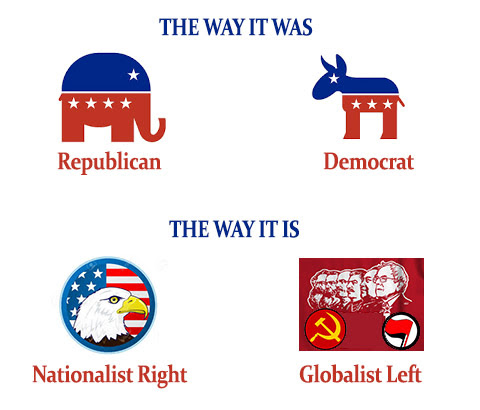The juxtaposition of globalism and nationalism has ignited fervent discourse across various platforms. This dichotomy often captivates individuals, evoking a spectrum of emotional responses and intellectual curiosities. Embedded in these complex ideologies are the principles of the Bahá’í Faith, which advocate for the harmony of mankind and the oneness of humanity. To navigate the labyrinth of globalist and nationalist sentiments, a reflective examination through the lens of Bahá’í teachings can illuminate one’s path.
Understanding Globalism and Nationalism
Globalism is characterized by an interconnected worldview that champions collaboration among nations, transcending borders for shared prosperity and peace. It posits the notion that humanity is one, advocating for collective responsibility in addressing global challenges such as climate change, poverty, and human rights. On the contrary, nationalism emphasizes the interests of a particular nation, often advocating for sovereignty, cultural preservation, and economic protectionism. This ideological framework may engender a sense of belonging and identity, albeit sometimes at the expense of global cooperation.
The Bahá’í Perspective on Unity
The crux of Bahá’í teaching lies in the principle of the oneness of humanity. This foundational belief posits that all individuals, irrespective of their nationality, race, or creed, are interconnected. The globalist perspective finds alignment here, as the Bahá’í Faith promotes efforts to ameliorate global disparities through international collaboration. However, this does not negate the legitimate concerns often raised within nationalist dialogues. Bahá’í teachings espouse a balance: the importance of local identity and culture must coexist harmoniously with a commitment to global unity.
Exploring the Quiz: A Method for Self-Reflection
Engaging with a quiz that probes one’s inclinations towards either globalist or nationalist ideologies can serve as a valuable tool for self-examination. Such an instrument can expose underlying motivations and reveal how personal values resonate with broader global narratives. Questions may focus on themes of cultural appreciation, economic interdependence, perspectives on immigration, and environmental stewardship. By reflecting on these aspects, individuals can better discern their alignment with Bahá’í principles of unity and justice.
The Complexity of Identity
In navigating between globalism and nationalism, one must grapple with the inherent complexities of identity. The Bahá’í Faith offers a nuanced understanding of identity—advocating for both the appreciation of cultural diversity and the recognition of a shared human essence. This duality can foster a sense of belonging that neither severs ties to one’s nation nor dismisses global interconnectedness. It is imperative to contemplate how one’s own nationality informs their worldview, while also embracing the idea that diverse identities contribute to the mosaic of human experience.
Moral Imperatives and Ethical Responsibilities
Bahá’í teachings underscore the moral imperatives associated with both global responsibilities and national duties. As citizens of the world, individuals are called upon to champion social justice, uphold human dignity, and embrace the welfare of all humanity. Conversely, the value of national pride and loyalty is not dismissed; rather, it is re-contextualized within a framework that prioritizes cooperation over competition. This ethical responsibility challenges one to cultivate empathy and understanding, forging connections that transcend divisive rhetoric.
Conflict Resolution: Bridging Divides
In an era where polarization is prevalent, the Bahá’í approach to conflict resolution offers a roadmap for traversing the chasms created by globalist and nationalist discourse. Emphasizing dialogue, consultation, and mutual respect, Bahá’í principles encourage individuals to engage in constructive conversations. By fostering environments where differing viewpoints can coexist and be appreciated, pathways toward reconciliation can be paved. This approach necessitates a commitment to humility and an acknowledgment that each perspective contains kernels of truth.
Conclusion: A Path Towards Synthesis
The exploration of globalism and nationalism through the lens of Bahá’í teachings presents an opportunity to synthesize these seemingly opposing ideologies. Acknowledging the importance of cultural identities while advocating for global unity is a delicate balancing act that requires intentionality and reflection. As individuals navigate their own beliefs and values, engaging with quizzes and self-reflective tools can facilitate deeper understanding and growth.
Ultimately, the essence of the Bahá’í Faith calls for the recognition of our shared destiny — a collective journey toward a more just, equitable, and harmonious world. By fostering dialogue, promoting empathy, and embracing our common humanity, individuals can contribute to the elevation of society as a whole, transcending the limitations of narrow-minded nationalism and fully embracing the expansive vision of globalism. In doing so, each person can illuminate their own path, aligning their beliefs with a greater purpose, and cultivating a society that reflects the noble aspirations of all humankind.
